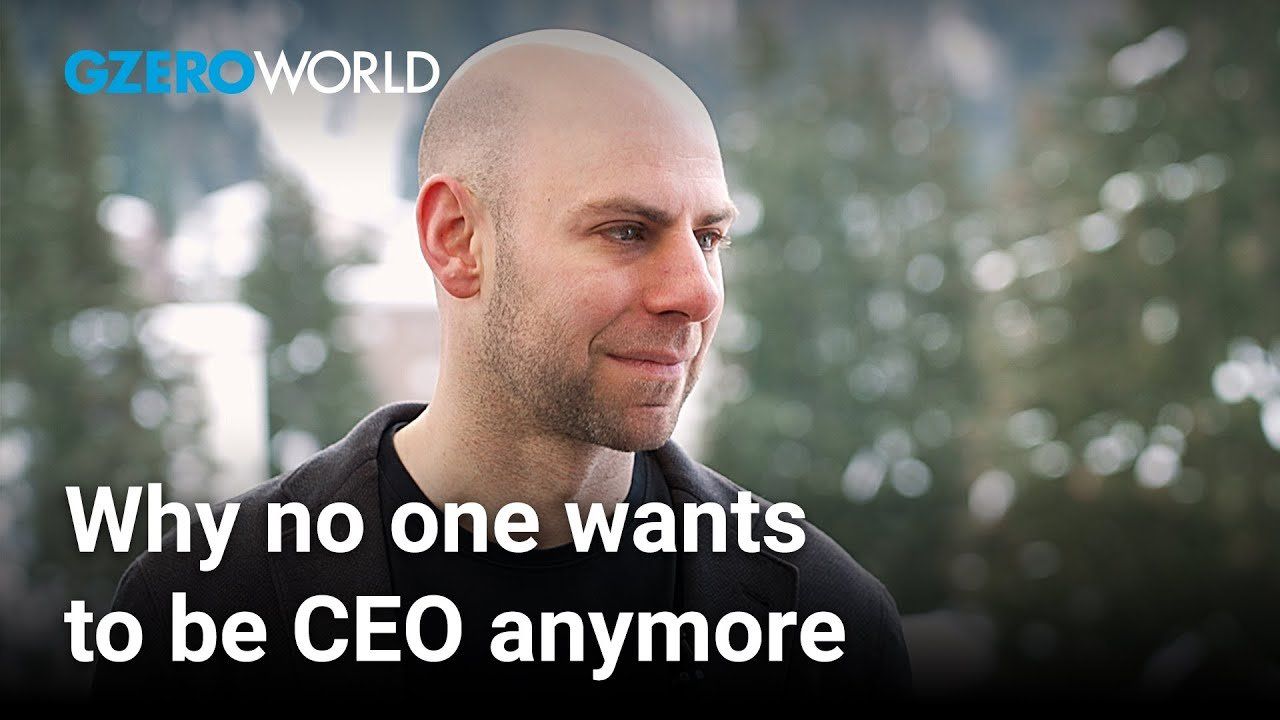GZERO World Clips
CEOs are becoming less powerful, says work expert Adam Grant

CEOs are becoming less powerful, says work expert Adam Grant | GZERO World

CEOs are influential and highly paid, but long hours, high stress, and uncertainty about the future are leading to “CEO burnout” and disinterest in leadership roles among young workers.
CEO is one of the most influential and highly-compensated jobs in the world, but according to organizational psychologist Adam Grant, the overwhelming feeling he senses from business leaders right now is one of “powerlessness.” With so many uncertainties and risks right now—climate change, crumbling democracy, powerful new advances in AI—CEOs are putting their heads down to focus on short-term gains instead of preparing for the long-term futures of their organizations.
On GZERO World, Ian Bremmer asks Grant, who studies leadership and culture in the business world, what he makes of this shift, and whether CEO incentives need to change. Grant sees a growing disinterest among young workers in taking on leadership roles, pointing to long hours, short tenures, and a growing sense that it’s unclear how much good they can do, if any, from the executive c-suite. All this contributes to what Grant calls “CEO burnout,” and he said he hopes to see more companies with co-CEOs, which is better for business and workers.
“I think the job [of CEO] is just so big and complex that it’s hard for one person to have all the skills you need,” Grant explains.
People in support of former South Korean President Yoon Suk Yeol rally near Seoul Central District Court in Seoul on Feb. 19, 2026. The court sentenced him to life imprisonment the same day for leading an insurrection with his short-lived declaration of martial law in December 2024.
65: The age of former South Korean President Yoon Suk Yeol, who was sentenced to life in prison on Thursday after being found guilty of plotting an insurrection when he declared martial law in 2024.
In an era when geopolitics can feel overwhelming and remote, sometimes the best messengers are made of felt and foam.
The Hungarian election is off to the races, and nationalist Prime Minister Viktor Orbán is facing his most serious challenger in 16 years.
Does skepticism rule the day in politics? Public opinion data collected as part of the Munich Security Conference’s annual report found that large shares of respondents in G7 and several BRICS countries believed their governments’ policies would leave future generations worse off.